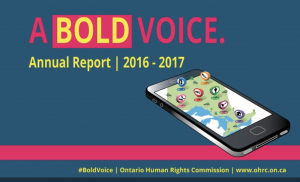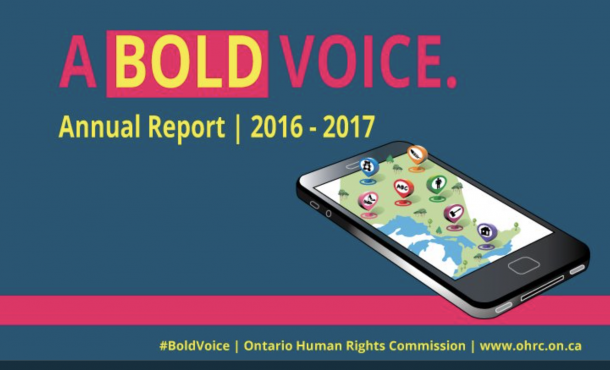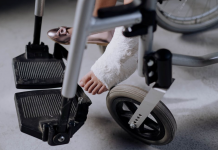 TORONTO – The Ontario Human Rights Commission (OHRC) launched A bold voice, its 2016-2017 Annual Report. This report highlights the OHRC’s work and the results we are seeing. Over the past year, the OHRC has successfully put people’s human rights at the centre of public conversations and policy-making, and advanced evidence-based and practical solutions to tackle the discrimination marginalized and vulnerable people continue to face.
TORONTO – The Ontario Human Rights Commission (OHRC) launched A bold voice, its 2016-2017 Annual Report. This report highlights the OHRC’s work and the results we are seeing. Over the past year, the OHRC has successfully put people’s human rights at the centre of public conversations and policy-making, and advanced evidence-based and practical solutions to tackle the discrimination marginalized and vulnerable people continue to face.
“In the past year, the OHRC boldly spoke out when it was difficult and even unwelcome,” said Chief Commissioner Renu Mandhane. “We waded into the tense debate around accommodating Friday prayers for Muslim high school students in Peel region. We spoke out against indefinite and arbitrary detention of non-citizens in provincial jails. And our collective efforts are yielding results.”
Our new strategic plan positions the OHRC as a bold voice on critical and emerging human rights issues, and as an institution that will use its functions and powers to make sure that people and their human rights are at the very centre of the decisions we make as a society.
Through a focus on reconciliation, the criminal justice system, poverty and education, we will address the discriminatory impacts of broader systems of colonialism, state power, resource allocation, and enculturation – which cause nearly all Code-protected groups, especially those with intersectional identities, to be marginalized and to have their disadvantage exacerbated or perpetuated.
The report highlights preliminary findings from our inquiry into the over-representation of Indigenous and Black children in child welfare, includes an intensified call for explicit protection in the Human Rights Code for people who experience discrimination because of their socio-economic status, and charts our progress on efforts to cultivate trusting relationships with First Nations, Métis and Inuit peoples.
The report focuses on the results we are seeing, such as empowering youth to stand up to Islamophobia by working with the community on the “Break the Behaviour” campaign, and the introduction of anti-racism legislation, which responds to the OHRC’s long-standing calls for government-mandated data collection in key sectors like education, policing and child welfare. We remain cautiously optimistic about the government’s commitment to correctional transformation brought about by our ground-breaking work on solitary confinement, including revealing Adam Capay’s treatment at the Thunder Bay Jail.
Added Mandhane, “Celebrations marking 150 years of confederation should include reflection on the history that has shaped our society today and the challenges that we must face head-on into the future. Only together can we create an inclusive society where everyone’s human rights are a lived reality.”
A Bold Voice Annual Report 2016-2017 – Ontario Human Rights Commission by NetNewsLedger.com on Scribd







